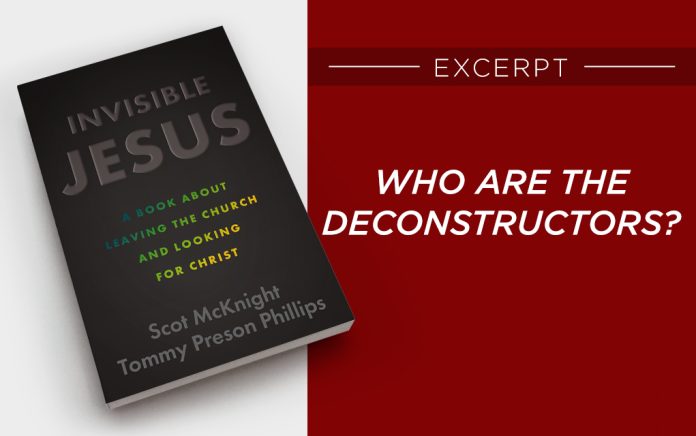Deconstruction is a rising trend in most American evangelical churches. Deconstructors themselves are sidelined, silenced, and sabotaged. For the most part, pastors and churches have been treating deconstruction as a symptom of a lack of information, or a lack of discipleship, or rebellion against God. Perhaps we are looking at something new in Christianity—an upheaval that cannot be solved by a sermon series or even by a book co-written by a Bible scholar and a pastor.
We believe something bigger is happening in the church, something that will continue to grow and that we dare not ignore. We believe deconstruction is a prophetic movement resisting a distorted gospel. It is not a problem; it is a voice. And we need to listen to what it is saying to the church.
At the heart of the rise of deconstruction is a loss of trust and confidence in the clergy. A significant Gallup Poll measuring the shift among people’s trust in clergy concluded that in 1983, 64 percent of people trusted them. Two years later, in 1985, that number grew to 67 percent. But by 1990, it had dipped to 55 percent and by 1993 to 53 percent. We have seen no rebound from the 1990s to the present day. In 2009, the number dropped to 50 percent, hitting 36 percent by 2021.
Today, approximately one in three persons in America trusts a clergyperson. This roughly parallels the level of confidence people have in the institutional church, though the church rates a bit lower than clergy today at a dismal 31 percent. By comparison, in 1975, the percent of people who had confidence in the church stood at 68 percent.
We also believe this new wave of deconstruction is not, as many religious leaders have suggested, something born of evil that must be denounced. We believe the work of deconstruction is often born of the Spirit, a movement of God attempting to bring the church back to Jesus. It is for Christ’s sake that people today are walking away from churches. Stories of deconstruction challenge us because they are the exit interviews many church leaders never have with those who leave the church. They never have them because they don’t take the time to ask. We did.
Our concern in this book is not with those wrapped up in the process of deconstructing their faith. We believe God is with them and for them in that process. Instead, we are concerned with those sitting in the pews next to them—how pew sitters treat those who doubt and how they respond to those who pose disruptive questions and raise subjects that church leaders do not want to talk about. Many of those labeled deconstructors are truth seekers who have identified abusive postures and beliefs but are now ostracized and treated as outsiders. They have had their voices unjustly silenced because those in the seats of power have dismissed their discernments, insights, and pressure points.
It’s time for us to listen, to sit down, quiet our minds, and hear what those who are leaving “religion” are saying. In many cases, they were not given a chance to speak. Until now.
Adapted from Invisible Jesus: A Book About Leaving the Church and Looking for Christ by Scot McKnight and Tommy Preson Phillips. Copyright © 2024. Used by permission of Zondervan Reflective. All rights reserved.

